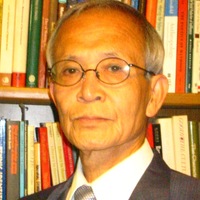shigeharu Tanabe
Chiang Mai University, Centre for Ethnic Studies and Development, Department Member
- Born in Japan, studied in Japan and Britainedit
Research Interests:
Research Interests:
Research Interests:
Research Interests:
Research Interests:
This paper is an attempt to deal with the formulation of an oppositional ideology, challenging the existing social order, within peasant rebellions which erupted in specific regions of South East Asia. The primary jntention of the... more
This paper is an attempt to deal with the formulation of an oppositional ideology, challenging the existing social order, within peasant rebellions which erupted in specific regions of South East Asia. The primary jntention of the discussion is to propose an adequate theoretical framework for the analysis of the complex entity of peasant ideology as a concrete social force, which is most clearly observable in the course of rebellions. It is argued that neither the crude economistic interpretation nor the conventional symbolic analysis underlying much social anthropological tradition can explain the emergence of critical consciousness and oppositional ideology which envisages the structural change ofa society. Instead, an analytical concept ofideological practice is developed-an intermediary concept linking social being in specific relations of production with social consciousness-based on an examination of some notable premisses of Bloch [1977], Alavi [1973], Thompson [1969, 1977] a...
Research Interests:
Research Interests:
Chapter 9 synthesizes findings of the country chapters and highlights common and contrasting experiences. This analysis focuses on largely descriptive accounts of similarities or differences under each topic heading (e.g., historical... more
Chapter 9 synthesizes findings of the country chapters and highlights common and contrasting experiences. This analysis focuses on largely descriptive accounts of similarities or differences under each topic heading (e.g., historical legacy, ethnicity, external circumstances, and so on) but stops short of linking these to one another in any integrative analytical framework. This comparative account closes with a set of “important points worth reiterating” (p. 269) of which the following is a sample: “[T]he Asian crisis has indeed rocked the economic and political structures of the Asian region,” “there is a consensus that the Asian crisis was a crisis of Asian capitalism which in many ways was also a symbol of the crisis of the global capitalism,” and “the need to reassess the benefits of globalization for the Asian region as a whole has also been raised.” These and others listed in similar fashion are all areas in which there is arguably a need for the reexamination of existing vie...
Part I. Ritual, Spirit mediumship, and the Politics of the Past Part II. Cultural Crisis and the Re-framing of Thai-ness Part III. On the Margins of the Thai World Reflections by Masato Fukushima, International University of Japan
Research Interests:
Research Interests:
... century England [THoMpsoN 1971': 76-136]・ For recent debates on the concept, see King [1978], Popkin [19791, and Moise [1982]. ... Leach's problematic is more complex.・ The theoretical riddle, most explicitly postulated in... more
... century England [THoMpsoN 1971': 76-136]・ For recent debates on the concept, see King [1978], Popkin [19791, and Moise [1982]. ... Leach's problematic is more complex.・ The theoretical riddle, most explicitly postulated in Political S)2stems of Highland Burma [LEAcH 1954], is ...
Research Interests:
The authors of this volume seek to contribute to the study of the ways in which the remembrance of the past is situated in wider contexts that are influenced by the politics of the present. These contexts range from the politics of the... more
The authors of this volume seek to contribute to the study of the ways in which the remembrance of the past is situated in wider contexts that are influenced by the politics of the present. These contexts range from the politics of the nation, situated in regional and global milieux, to ...
Research Interests:
Research Interests:
Research Interests:
This paper tries to clarify how people practice Buddhist meditation to imagine and construct “what they could be” in order to evade complex power structures. Buddhist meditation primarily aims at pursuing nirvana, but it also seeks... more
This paper tries to clarify how people practice Buddhist meditation to imagine and construct “what they could be” in order to evade complex power structures. Buddhist meditation primarily aims at pursuing nirvana, but it also seeks this-worldly ends such as healing, fortune telling, protection, invulnerability, and so on. Such pursuit of soteriological ends, particularly for many monks, hermits, and laypersons in northern Thailand, involves ways by which they transform themselves into others, or “become” (devenir) somebody or something else, including a Buddha. In other words, the meditator devotes oneself to resistance to a variety of material and spiritual hardships and distress or even insanity in this world. This paper investigates such resistance through meditation in the ethnographic accounts of the hermits who have recently developed a forest retreat at King’s Mountain in northern Thailand.
Research Interests:
This paper is an attempt to deal with the formulation of an oppositional ideology, challenging the existing social order, within peasant rebellions which erupted in specific regions of South East Asia. The primary jntention of the... more
This paper is an attempt to deal with the formulation of an oppositional ideology, challenging the existing social order, within peasant rebellions which erupted in specific regions of South East Asia. The primary jntention of the discussion is to propose an adequate theoretical framework for the analysis of the complex entity of peasant ideology as a concrete social force, which
Research Interests:
Research Interests:
This article written in Japanese was published in Ethnology Quarterly (Association for Promotion of Ethnology, Japan) No.57, 1991: pp.6–19.
